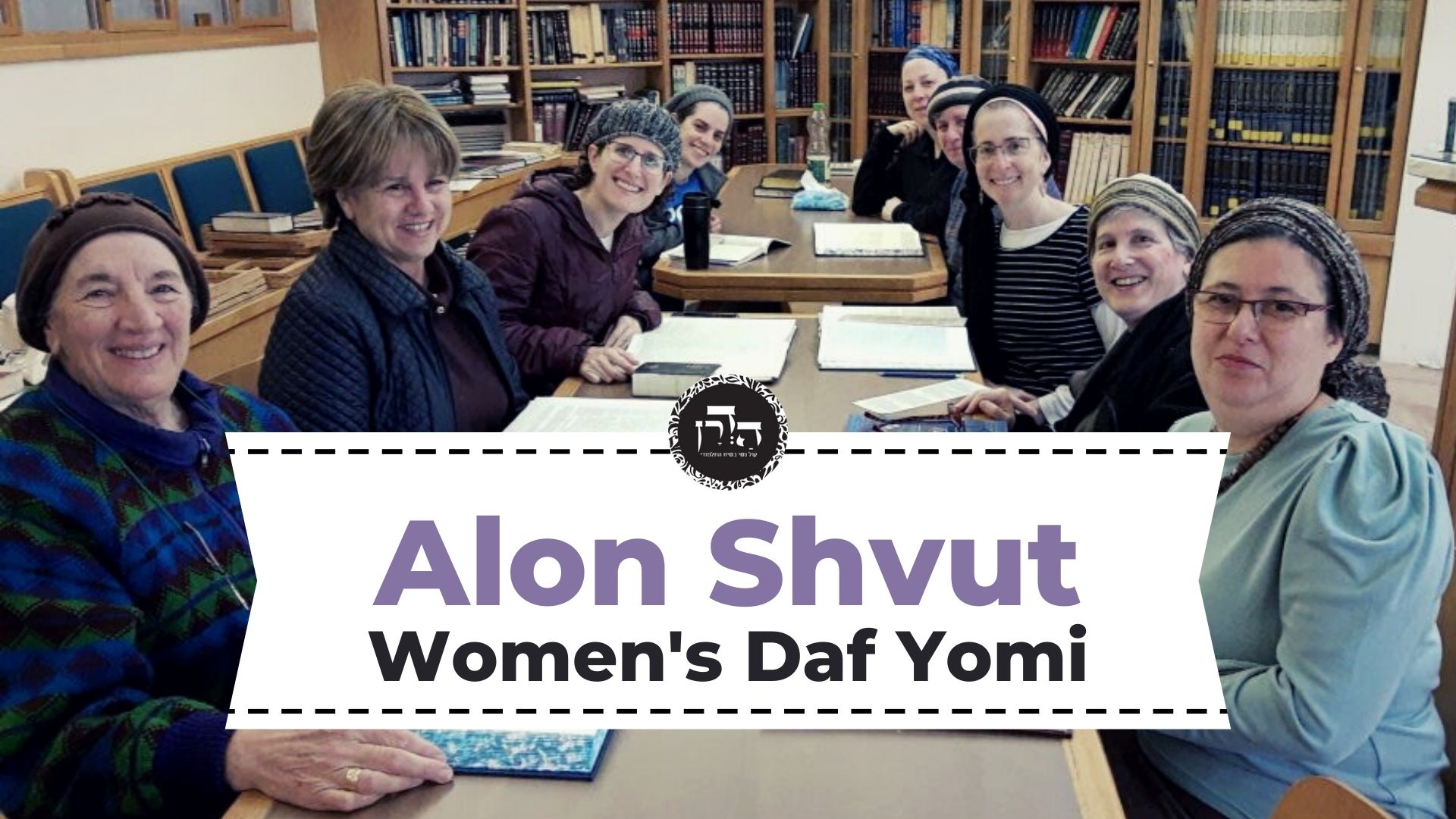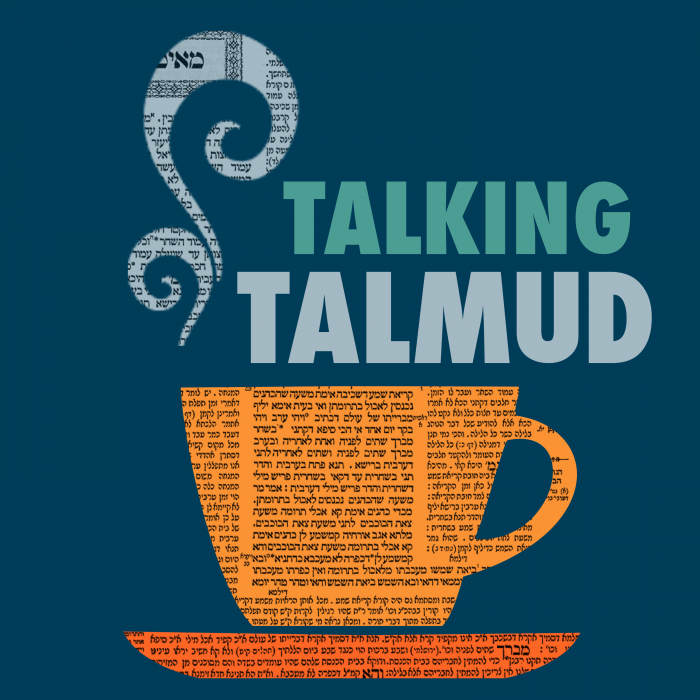Pesachim 99
מִכָּאן אָמְרוּ חֲכָמִים: יָפָה שְׁתִיקָה לַחֲכָמִים, קַל וָחוֹמֶר לַטִּפְּשִׁים. שֶׁנֶּאֱמַר: ״אֱוִיל מַחֲרִישׁ חָכָם יֵחָשֵׁב״.
From here the Sages stated: Silence is fitting for the wise, and a fortiori the same is true for fools. In the case under discussion, had neither side appointed the other to slaughter the Paschal lamb on its behalf, both offerings would be valid and would be consumed. When each side appointed the other to slaughter the Paschal lamb on its behalf, only the first one slaughtered may be eaten while the second one must be burned. This is as it is stated: “Even a fool, when he holds his peace, is considered wise; and he that shuts his lips is esteemed as a man of understanding” (Proverbs 17:28).
שְׁנַיִם שֶׁנִּתְעָרְבוּ פִּסְחֵיהֶם וְכוּ׳. לֵימָא מַתְנִיתִין דְּלָא כְּרַבִּי יְהוּדָה. דְּתַנְיָא: ״וְאִם יִמְעַט הַבַּיִת מִהְיוֹת מִשֶּׂה״, מְלַמֵּד שֶׁמִּתְמַעֲטִין וְהוֹלְכִין, וּבִלְבַד שֶׁיְּהֵא אֶחָד מִבְּנֵי חֲבוּרָה קַיָּים, דִּבְרֵי רַבִּי יְהוּדָה. רַבִּי יוֹסֵי אוֹמֵר: וּבִלְבַד שֶׁלֹּא יַנִּיחוּ אֶת הַפֶּסַח כְּמוֹת שֶׁהוּא!
The mishna addressed the question of what two individuals whose Paschal lambs were intermingled should do. The Gemara suggests: Let us say that the mishna is not in accordance with the opinion of Rabbi Yehuda, as it was taught in a baraita that the verse which states: “And if the household be too little for a lamb” (Exodus 12:4) teaches that the members of the group may keep decreasing, meaning it is permissible for them to withdraw from the offering, provided one of the original members of the group remains; this is the statement of Rabbi Yehuda. Rabbi Yosei says: It is permissible for them to withdraw provided they do not leave the Paschal lamb for any amount of time on its own, without anyone registered for it. In the mishna, the two original owners forego their shares in their own Paschal lambs, and the only remaining members of each group are people who were added from the marketplace, who were not original owners from the time the animal was separated as a Paschal lamb. This is apparently not in accordance with the opinion of Rabbi Yehuda.
אָמַר רַבִּי יוֹחָנָן: אֲפִילּוּ תֵּימָא רַבִּי יְהוּדָה, כֵּיוָן דְּאָמַר רַבִּי יְהוּדָה אֵין שׁוֹחֲטִין אֶת הַפֶּסַח עַל הַיָּחִיד, מֵעִיקָּרָא לְאַמְנוֹיֵי אַחֲרִינָא בַּהֲדֵיהּ קָאֵי, וּכְאֶחָד מִבְּנֵי חֲבוּרָה דָּמֵי.
Rabbi Yoḥanan said: Even if you say that the mishna is in accordance with the opinion of Rabbi Yehuda, since Rabbi Yehuda said elsewhere that one may not slaughter the Paschal lamb for an individual, meaning that there must be at least two people registered for each Paschal lamb, in this case, in which only one person was registered for a Paschal lamb, from the beginning it stood to have another person registered with the original owner. Therefore, the person who joins later is like one of the original members of the group.
אָמַר רַב אָשֵׁי: מַתְנִיתִין נָמֵי דַּיְיקָא, דְּקָתָנֵי: וְכֵן חָמֵשׁ חֲבוּרוֹת שֶׁל חֲמִשָּׁה חֲמִשָּׁה. שֶׁל חֲמִשָּׁה — אִין, אֲבָל שֶׁל חֲמִשָּׁה וְאַרְבָּעָה — לָא, לָאו מִשּׁוּם דְּלָא פָּיֵישׁ חַד מִבְּנֵי חֲבוּרָה גַּבֵּיהּ? שְׁמַע מִינַּהּ.
Rav Ashi said: The mishna is also precisely worded in accordance with the opinion of Rabbi Yehuda, as it teaches: And similarly, five groups of five each. This indicates that if each group has five, yes, the solution of sending four of them to join the other groups is viable, but if there were four groups of five and a fifth group of only four, there is no way to employ the solution of the mishna. Is it not because none of the original members of the group would remain with it if all four members of the group would join the other four groups, and it is prohibited to leave a Paschal lamb without any of the original members of its group? The Gemara concludes: Indeed, learn from it that the mishna follows the opinion of Rabbi Yehuda.
הַדְרָן עֲלָךְ מִי שֶׁהָיָה טָמֵא וּסְלִיקָא לַהּ פֶּסַח שֵׁנִי
MISHNA: On the eve of Passover, adjacent to minḥa time, a person may not eat until dark, so that he will be able to eat matza that night with a hearty appetite. Even the poorest of Jews should not eat the meal on Passover night until he reclines on his left side, as free and wealthy people recline when they eat. And the distributors of charity should not give a poor person less than four cups of wine for the Festival meal of Passover night. And this halakha applies even if the poor person is one of the poorest members of society and receives his food from the charity plate.
מַתְנִי׳ עֶרֶב פְּסָחִים סָמוּךְ לַמִּנְחָה לֹא יֹאכַל אָדָם עַד שֶׁתֶּחְשַׁךְ. אֲפִילּוּ עָנִי שֶׁבְּיִשְׂרָאֵל לֹא יֹאכַל עַד שֶׁיָּסֵב, וְלֹא יִפְחֲתוּ לוֹ מֵאַרְבַּע כּוֹסוֹת שֶׁל יַיִן וַאֲפִילּוּ מִן הַתַּמְחוּי.
GEMARA: The Gemara expresses surprise at the mishna’s statement that one may not eat on Passover eve from the time that is adjacent to minḥa. Why discuss this halakha particularly with regard to the eves of Passover? Even on the eves of Shabbat and other Festivals it is also prohibited to eat in the late afternoon, as it was taught in a baraita: A person should not eat on the eves of Shabbat and Festivals from minḥa time onward, so that he will enter Shabbat when he has a desire to eat and he will enjoy the Shabbat meal; this is the statement of Rabbi Yehuda. Rabbi Yosei says: One may continue eating until dark.
גְּמָ׳ מַאי אִירְיָא עַרְבֵי פְסָחִים? אֲפִילּוּ עַרְבֵי שַׁבָּתוֹת וְיָמִים טוֹבִים נָמֵי. דְּתַנְיָא: לֹא יֹאכַל אָדָם בְּעַרְבֵי שַׁבָּתוֹת וְיָמִים טוֹבִים מִן הַמִּנְחָה וּלְמַעְלָה כְּדֵי שֶׁיִּכָּנֵס לַשַּׁבָּת כְּשֶׁהוּא תַּאֲוָה, דִּבְרֵי רַבִּי יְהוּדָה. רַבִּי יוֹסֵי אוֹמֵר: אוֹכֵל וְהוֹלֵךְ עַד שֶׁתֶּחְשַׁךְ.
Rav Huna said: The mishna was necessary only according to the opinion of Rabbi Yosei, who said that one may continue eating until dark. According to his opinion, the mishna is necessary to emphasize that this applies only on the eves of Shabbat and Festivals. But on the eve of Passover, due to the obligation to eat matza, Rabbi Yosei concedes that one must refrain from eating in the afternoon, so that he will eat matza with a good appetite.
אָמַר רַב הוּנָא: לָא צְרִיכָא אֶלָּא לְרַבִּי יוֹסֵי, דְּאָמַר: אוֹכֵל וְהוֹלֵךְ עַד שֶׁתֶּחְשַׁךְ — הָנֵי מִילֵּי בְּעַרְבֵי שַׁבָּתוֹת וְיָמִים טוֹבִים, אֲבָל בְּעֶרֶב הַפֶּסַח, מִשּׁוּם חִיּוּבָא דְמַצָּה מוֹדֶה.
Rav Pappa said: Even if you say that the mishna is in accordance with the opinion of Rabbi Yehuda, there is still a difference between the eves of Shabbat and other Festivals, as compared with the eve of Passover. There, on the eves of Shabbat and other Festivals, it is only from minḥa time onward that it is prohibited to eat, but adjacent to minḥa time it is permitted. However, on the eve of Passover, even adjacent to minḥa time, it is also prohibited to eat. For this reason, the mishna is referring specifically to the eve of Passover.
רַב פָּפָּא אָמַר: אֲפִילּוּ תֵּימָא רַבִּי יְהוּדָה, הָתָם בְּעַרְבֵי שַׁבָּתוֹת וְיָמִים טוֹבִים מִן הַמִּנְחָה וּלְמַעְלָה הוּא דַּאֲסִיר, סָמוּךְ לַמִּנְחָה שְׁרֵי. אֲבָל בְּעֶרֶב הַפֶּסַח, אֲפִילּוּ סָמוּךְ לַמִּנְחָה נָמֵי אָסוּר.
The Gemara asks: And on the eve of Shabbat adjacent to minḥa time, is it permitted to eat? But wasn’t the following taught in a baraita? A person may not eat on the eve of Shabbat and Festivals from nine hours onward, so that he will enter Shabbat when he is filled with the desire to eat; this is the statement of Rabbi Yehuda. Rabbi Yosei says: One may continue eating until dark. According to the opinion of Rabbi Yehuda, even on Shabbat eve one may not eat from before the time of the lesser minḥa, which is at nine and a half hours of the day.
וּבָעֶרֶב שַׁבָּת סָמוּךְ לַמִּנְחָה שְׁרֵי? וְהָתַנְיָא: לֹא יֹאכַל אָדָם בְּעֶרֶב שַׁבָּת וְיָמִים טוֹבִים מִתֵּשַׁע שָׁעוֹת וּלְמַעְלָה, כְּדֵי שֶׁיִּכָּנֵס לַשַּׁבָּת כְּשֶׁהוּא תַּאֲוָה, דִּבְרֵי רַבִּי יְהוּדָה. רַבִּי יוֹסֵי אוֹמֵר: אוֹכֵל וְהוֹלֵךְ עַד שֶׁתֶּחְשַׁךְ.
Mar Zutra said: Who will say to us that this version of the baraita is accurate?
אָמַר מָר זוּטְרָא: מַאן לֵימָא לַן דִּמְתָרַצְתָּא הִיא?























